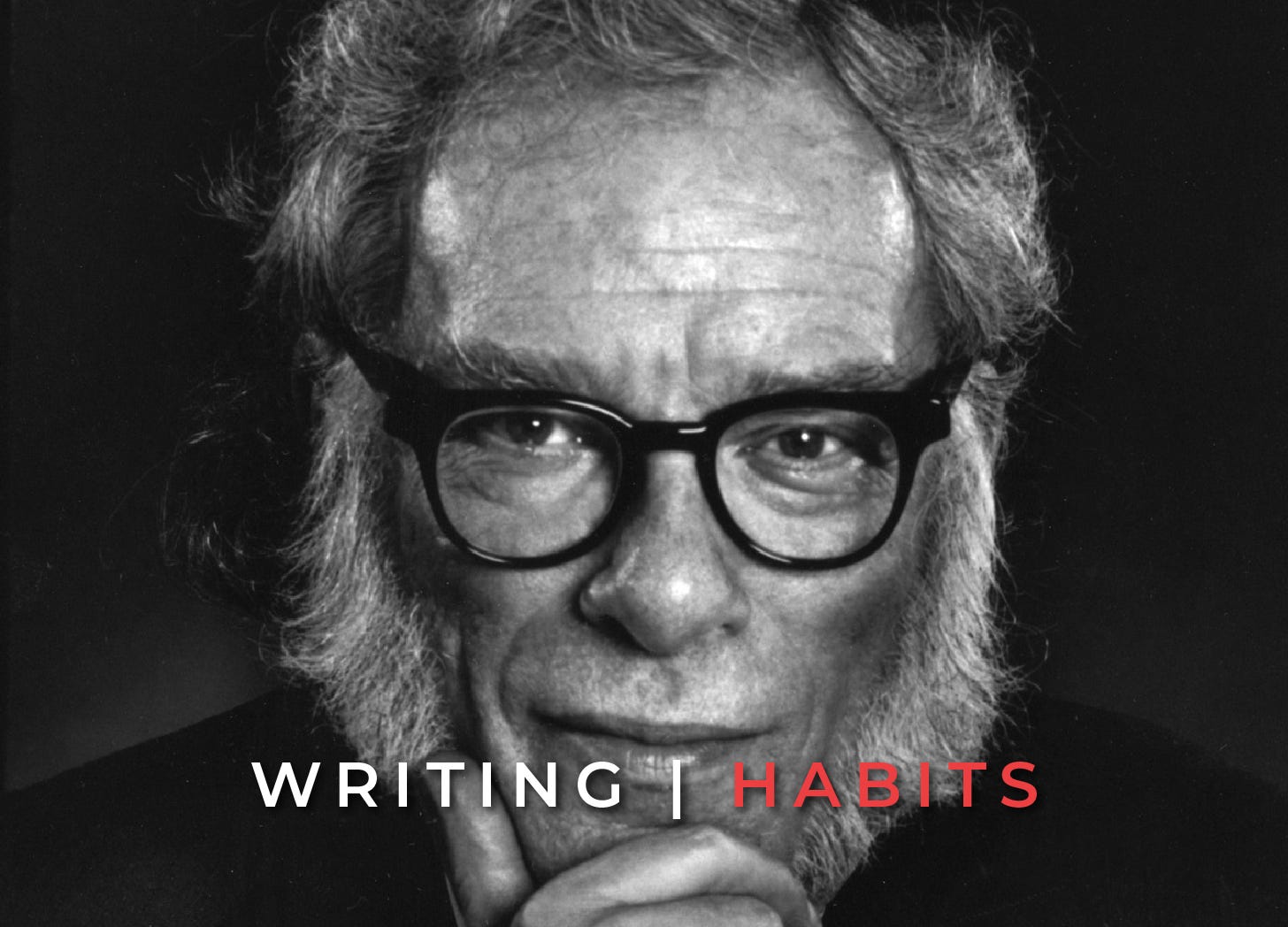Isaac Asimov is credited with writing 500 books, 1,600 essays, and 90,000 letters and postcards.
In his memoir I, Asimov, he reflects on the habits that fueled his remarkable productivity.
Read on to learn about:
His “candy store” schedule
How he found peace as a writer
Why school is not enough
… and more
If you enjoy this piece, consider sharing it with others—it makes a big difference!
Daily Routine: The Candy Store Schedule
"I wake at five in the morning.
I get to work as early as I can.
I work as long as I can.
I do this every day of the week, including holidays.
I don’t take vacations voluntarily and I try to do my work even when I’m on vacation.
(And even when I’m in the hospital.)
In other words, I am still and forever in the candy store."
Asimov’s father owned a succession of candy stores in Brooklyn that were open from 6 A.M. to 1 A.M. seven days a week. Young Isaac got up at 6 every morning to deliver papers and rushed home from school to help out in the store every afternoon.
If he was even a few minutes late, his father yelled at him for being lazy
Asimov's early experiences in his father's candy stores instilled a deep sense of discipline in him. This foundation influenced his lifelong work ethic and shaped his daily routine.
"It is a point of pride with me that though I have an alarm clock, I never set it, but get up at 6 A.M. anyway. I am still showing my father I'm not [lazy]."
— The New York Times, April 7, 1992
The Joy of Writing: Motivation and Productivity
"I’m not waiting on customers; I’m not taking money and making change; I’m not forced to be polite to everyone who comes in (in actual fact, I was never good at that). I am, instead, doing things I very much want to do — but the schedule is there; the schedule that was ground into me; the schedule you would think I would have rebelled against once I had the chance."
Asimov loved writing, and this passion pushed him to create so many books. In a 1988 interview, he said, "All I do is write. I do practically nothing else, except eat, sleep, and talk to my wife."
He believed that to be productive, you need to be a "single-minded, driven, non-stop person." But it wasn’t a chore for him.
He wrote because he enjoyed it, calling it "pure hedonism."
It was through joy not rote discipline that he was able to create so much.
"What I decided was that I wasn’t writing ten times as many books in order to get ten times the monetary returns, but in order to have ten times the pleasure."
Lifelong Learning
"To learn is to broaden, to experience more, to snatch new aspects of life for yourself. To refuse to learn or to be relieved at not having to learn is to commit a form of suicide; in the long run, a more meaningful type of suicide than the mere ending of physical life.
Knowledge is not only power; it is happiness, and being taught is the intellectual analog of being loved."
— Isaac Asimov, Yours, Isaac Asimov: A Life in Letters
If anything defined Asimov beyond sheer productivity, it was his thirst for knowledge. He never stopped learning, claiming:
“Nothing goes to waste, if you’re determined to learn. I had already learned, for instance, that although I was one of the most overeducated people I knew, I couldn’t possibly write the variety of books I manage to do out of the knowledge I had gained in school alone. I had to keep a program of self-education in process.”
Finding Peace in Independence
“I never found true peace till I turned my whole working life into self-employment... Better to be a one-man operation, which I eventually became and remained.”
Thanks for reading! I post writing-related content like this three times a week. If you want access to the full archive, consider upgrading to a paid subscription. You can also help me grow by sending this to a friend. Thanks, and see you next time!





